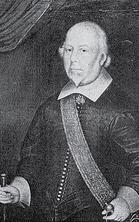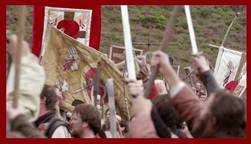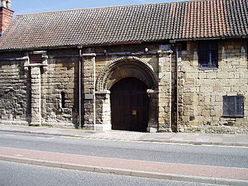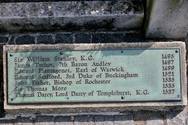'conspiring to change laws and depose the king, and that he abetted those who made war on the king in October 1536'
Hussey's links with Darcy stem from their Lincolnshire roots, but it was his association with his cousin and the risings in Yorkshire plus his suspected Catholic sympathies, (the Catholic accusations made against him were based on the fact that both Hussey and his wife, Anne Grey had attended Henry VIII's daughter Mary) that made the case against him, therefore he was guilty by association and his failure to put down a rebellion that threatened Henry.
'... am sending Hussey for you to behead in Lincoln as soon as possible after his arrival...'
and by the the first week in July Thomas Cromwell wrote to Thomas Wyat that Hussey had been executed at Lincoln. I think that we can safely assume that Hussey was executed in his home county of Lincolnshire.
Before Hussey went to the scaffold Thomas Cromwell offered him his
"lyffe, landes and goodes"
if he would inform on those involved in the rebellion, but Hussey had already testified that he knew nothing.
There are a number of written accounts of John Hussey's death which are collected together in E Mansel Sympson's book "Lincoln, A Historical and Topographical Account of the City". One quote is from antiquarian John Leyland who reports
'Lord Hussey's house at Lincoln on the west side of the street, in the suburbs of Wickenford, out of whose bow window he went to execution"
So ended the life of a man who was a loyal Tudor courtier and who had fought with Henry VII at Stoke.





 RSS Feed
RSS Feed
